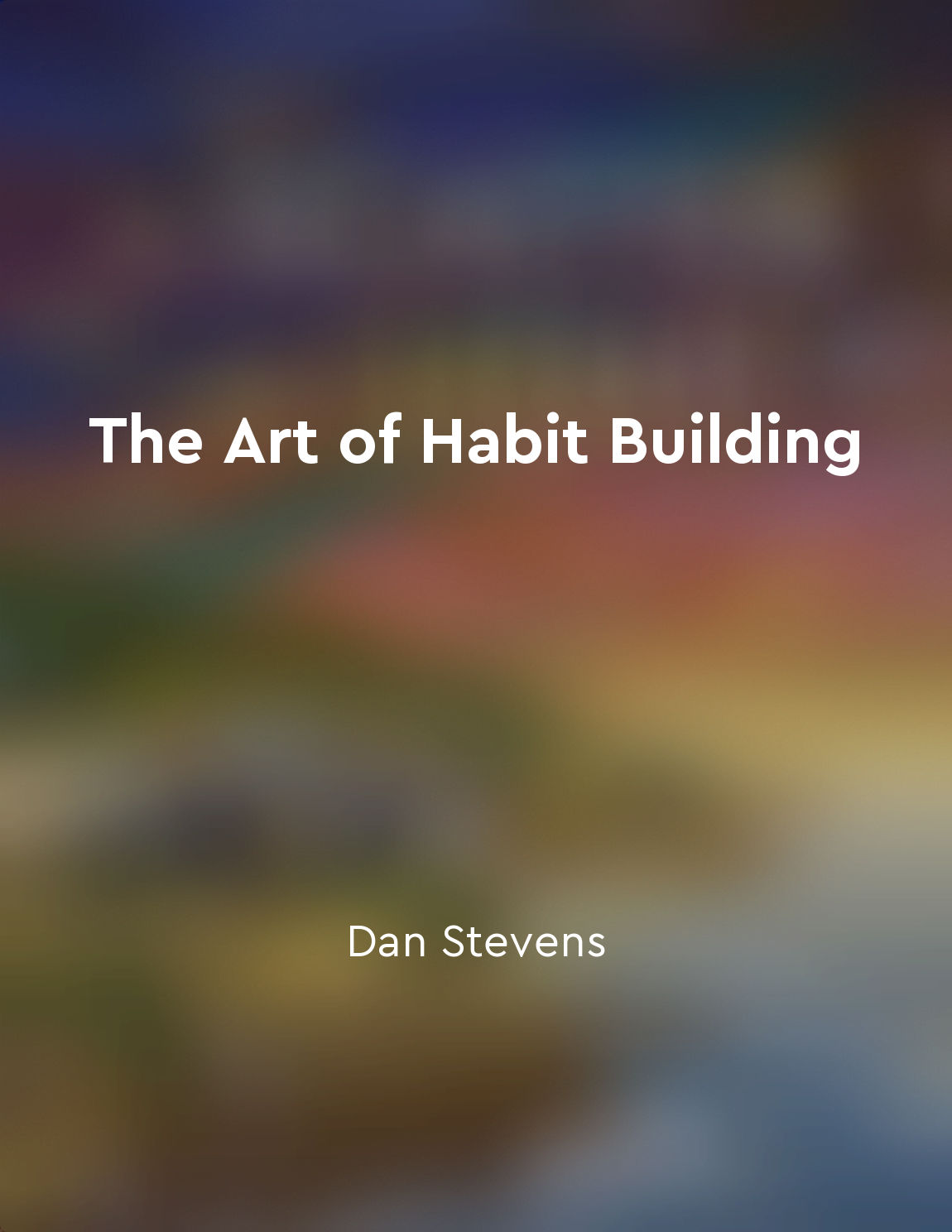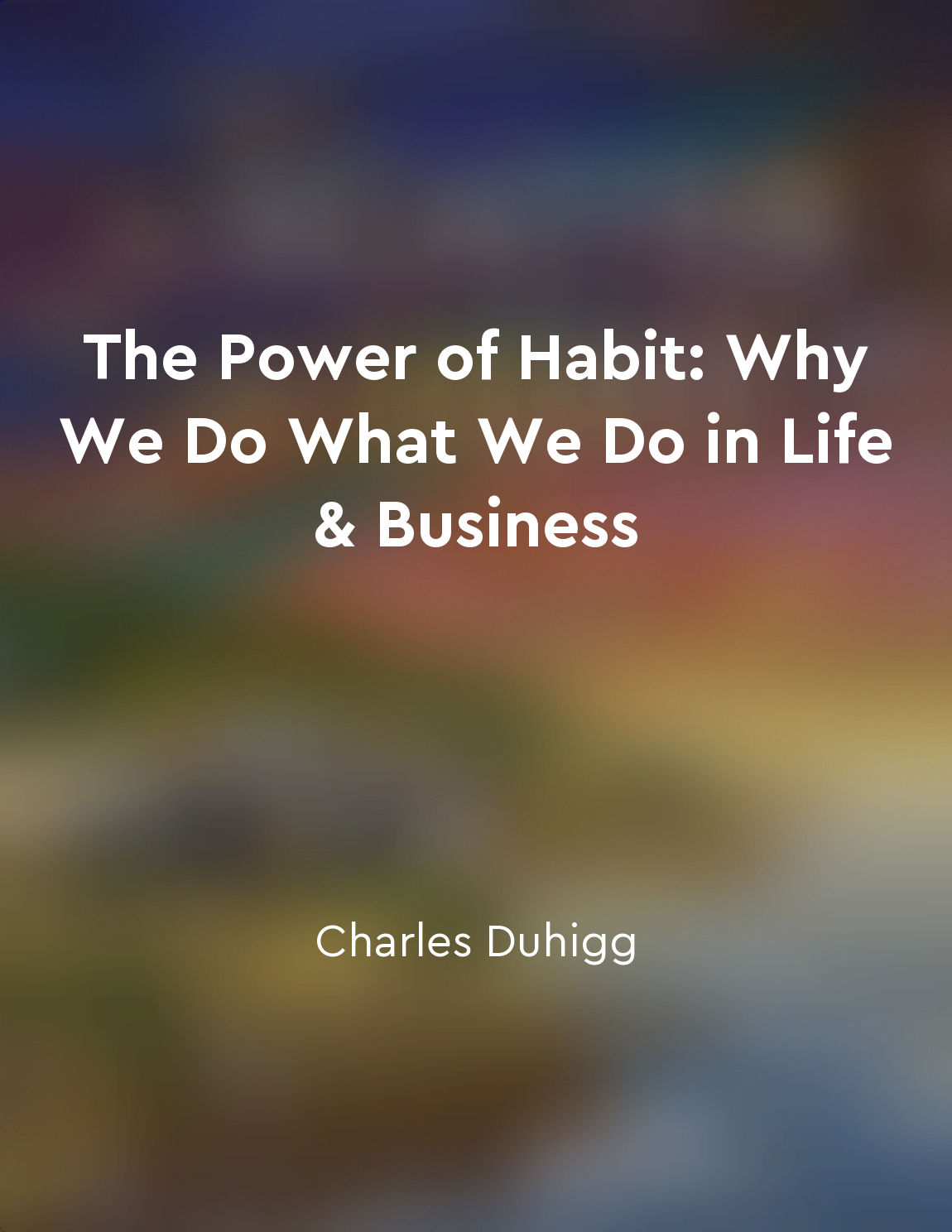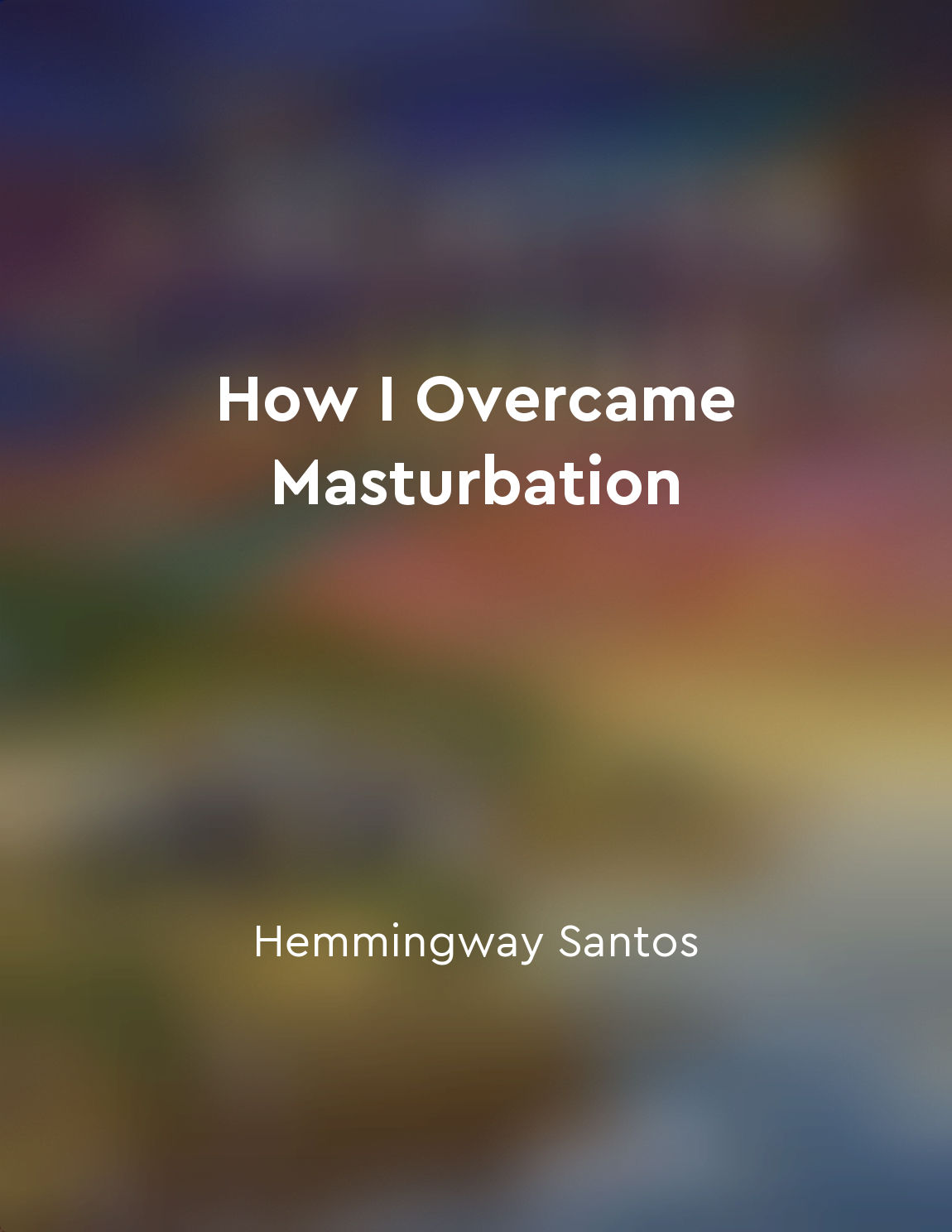Identifying triggers is essential for breaking bad habits from "summary" of Summary of The Power of Habit by Charles Duhigg by Instaread
Identifying triggers is essential for breaking bad habits. A trigger is a specific cue that prompts a certain behavior to occur. Recognizing triggers allows individuals to understand why they engage in certain habits, providing insight into how to change them. By identifying triggers, people can take proactive steps to avoid or alter the circumstances that lead to the undesirable behavior. For example, if someone tends to overeat when feeling stressed, they can learn to recognize stress as a trigger for overeating and develop alternative coping mechanisms. This awareness empowers individuals to make conscious choices in the moment when faced with a trigger, rather than succumbing to automatic habits. In the book "The Power of Habit," Charles Duhigg explores the concept of triggers in relation to habits. He emphasizes the importance of identifying triggers as a crucial step in breaking bad habits. Duhigg explains that habits are formed through a three-step loop: cue, routine, and reward. The cue triggers the behavior, the routine is the habit itself, and the reward reinforces the behavior. By understanding the cue or trigger that initiates a habit, individuals can disrupt the loop and replace the routine with a more positive behavior. Duhigg provides examples of how companies and individuals have successfully changed habits by identifying triggers. For instance, he describes how Target used data analysis to predict customer behavior and send targeted marketing offers. By identifying triggers such as pregnancy, Target was able to change shopping habits and increase sales. Similarly, individuals can apply this concept to their personal habits by recognizing the cues that lead to undesirable behaviors.- Identifying triggers is a critical step in breaking bad habits. By understanding the cues that prompt certain behaviors, individuals can take control of their habits and make positive changes. Through self-awareness and conscious decision-making, people can break free from destructive patterns and cultivate healthier habits.
Similar Posts
Foster strong emotional connections with users
To create a habit-forming product, it is essential to foster strong emotional connections with users. By tapping into users' em...
It is not goals but systems that lead to success
Success is not just about setting goals; it's about creating systems that will lead you to achieve those goals. Goals can provi...

Seek help if you're struggling
If you find yourself struggling to build a habit on your own, don't be afraid to reach out for help. Seeking help is not a sign...

Willpower is a limited resource that can be depleted
In one experiment, participants were asked to watch a sad movie while resisting the urge to eat freshly baked chocolate chip co...
Build habits that align with your values and goals
Building habits that align with your values and goals is essential for achieving long-term success. When your habits are in lin...

Stay committed to habit formation despite challenges
When you commit to forming a new habit, you are essentially making a promise to yourself. This promise is a pledge to stick wit...
Accountability can support habit change efforts
Accountability plays a crucial role in the process of habit change. When we are held accountable for our actions and behaviors,...
Choosing to change is empowering
The idea that choosing to change is empowering lies at the heart of the transformation process explored in this text. By recogn...

Practicing mindfulness fosters selfawareness
Mindfulness is the practice of being fully present in the moment, without judgment or distraction. When we are mindful, we are ...
Set yourself up for success
Setting yourself up for success is crucial when it comes to achieving your goals. By creating an environment that supports your...

